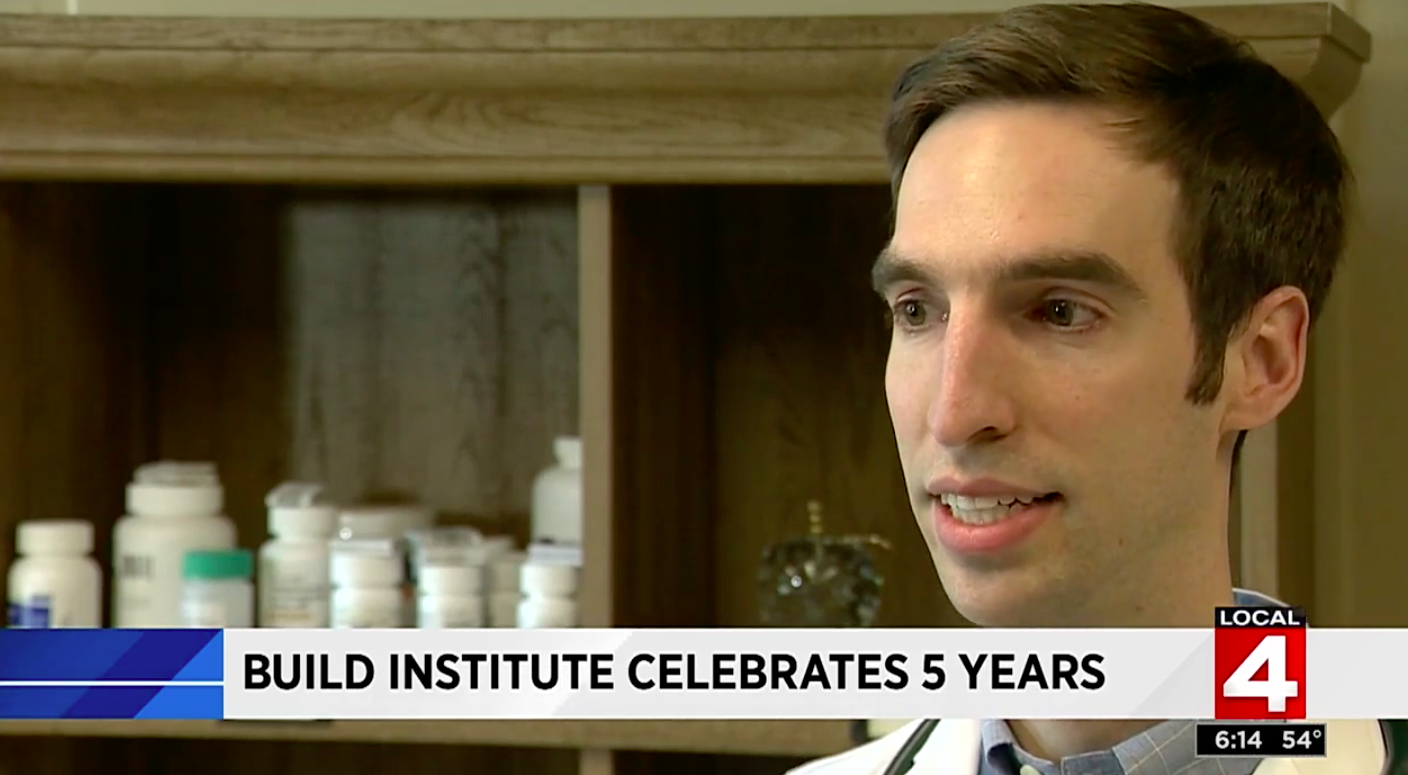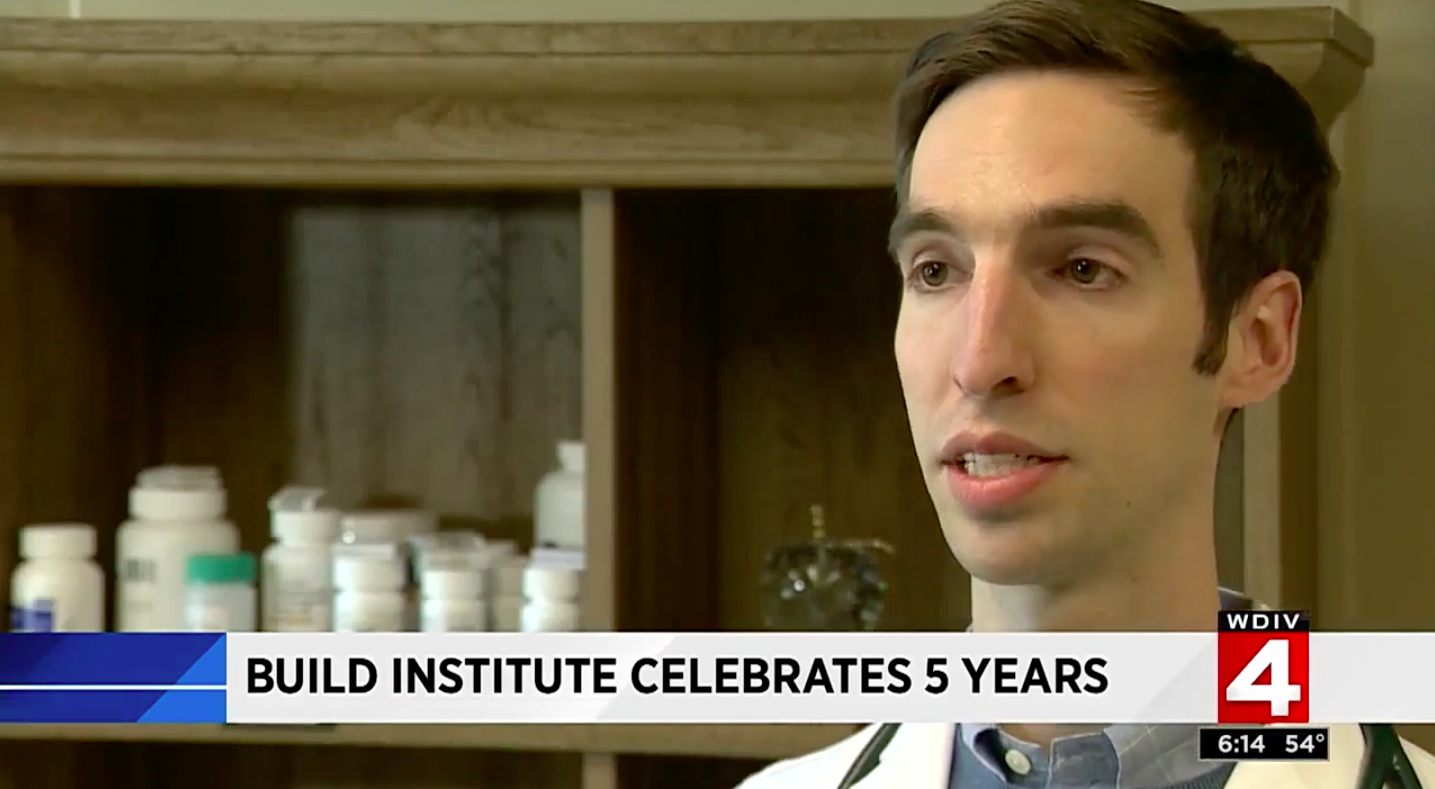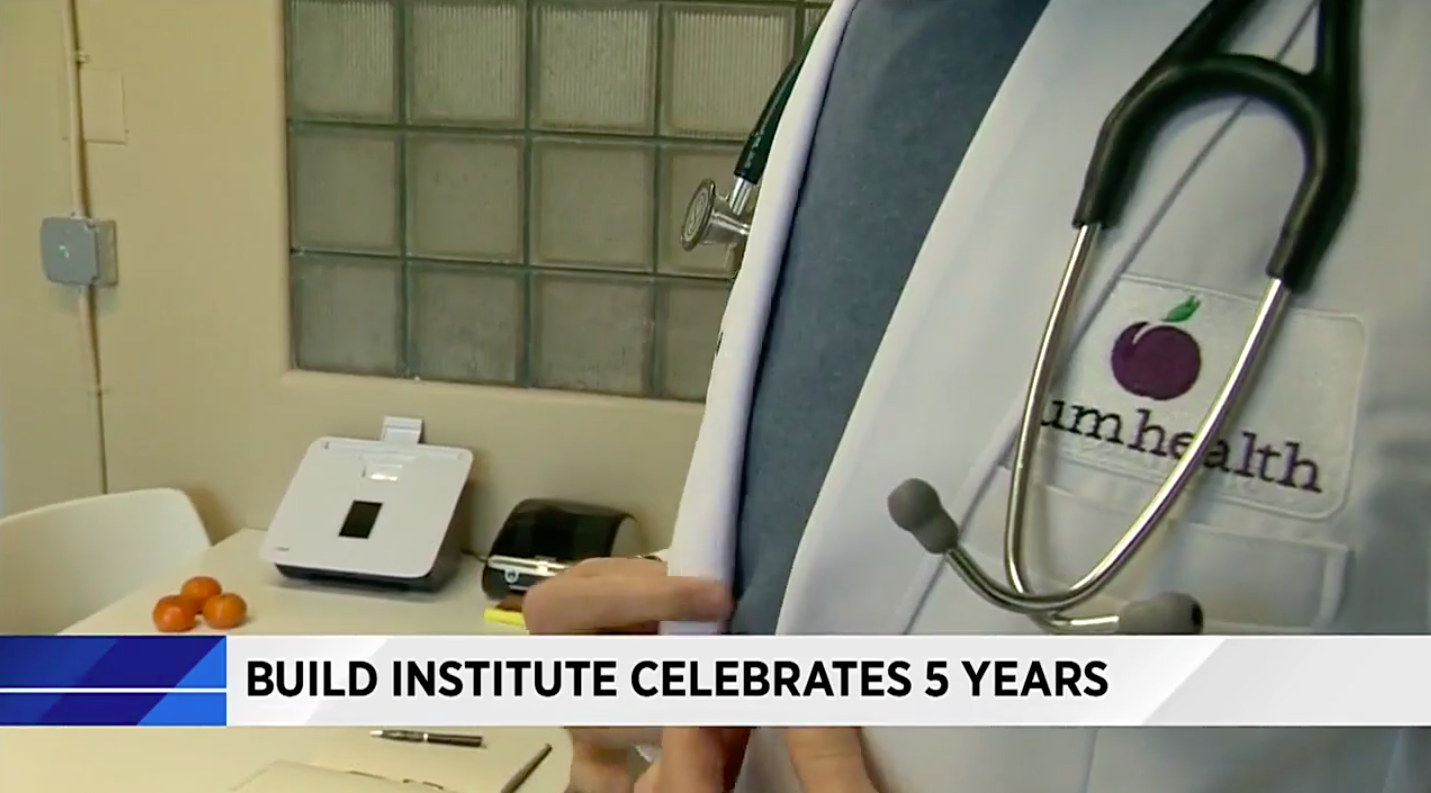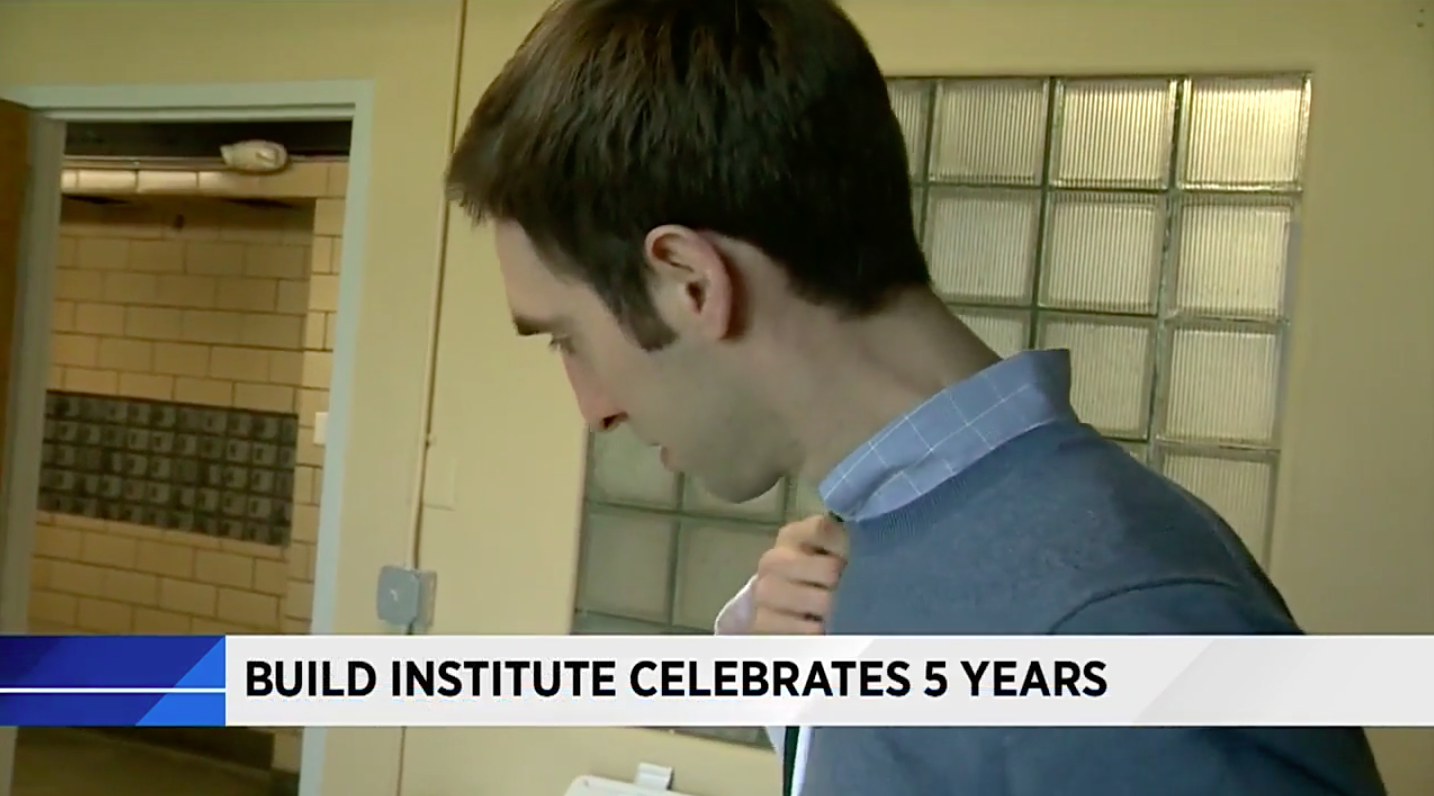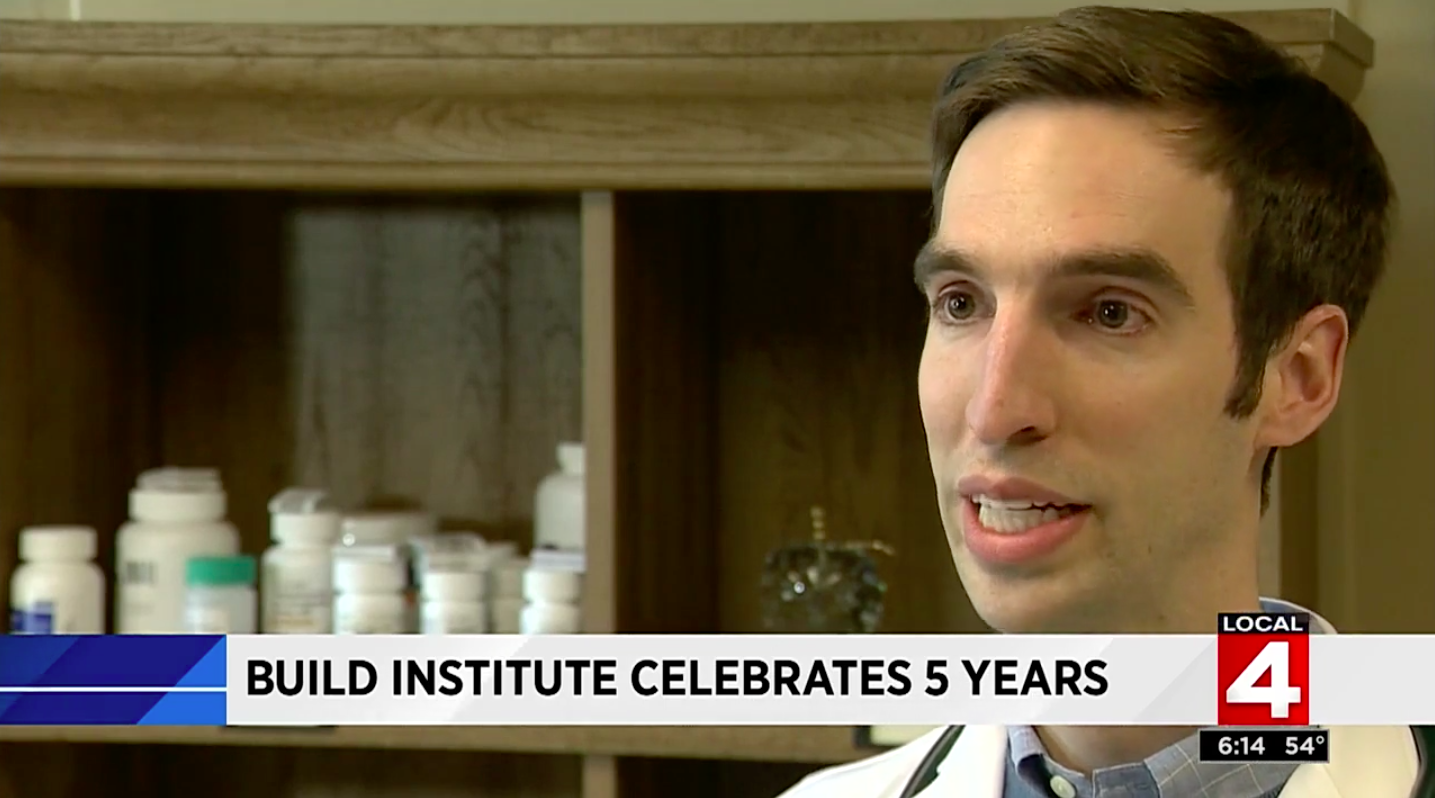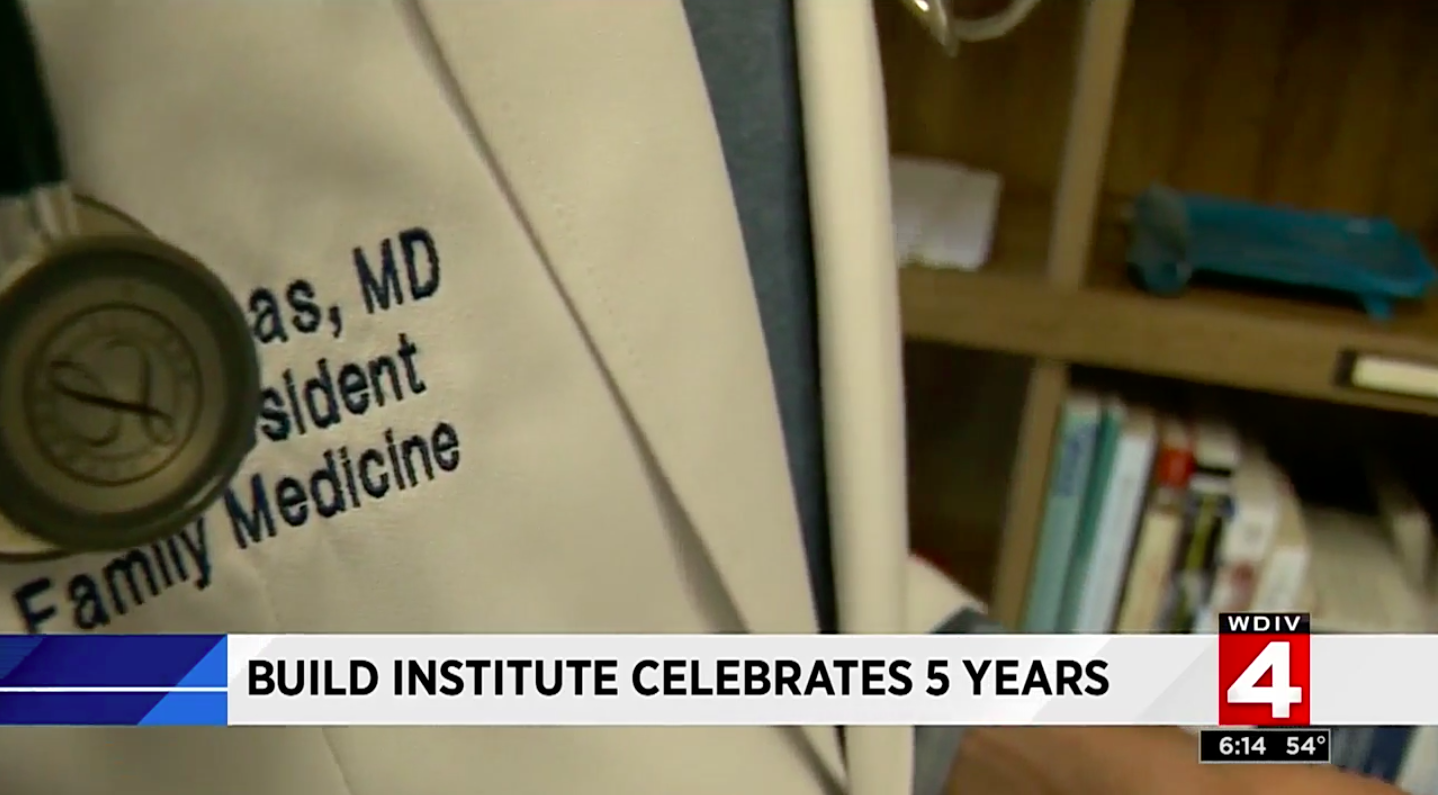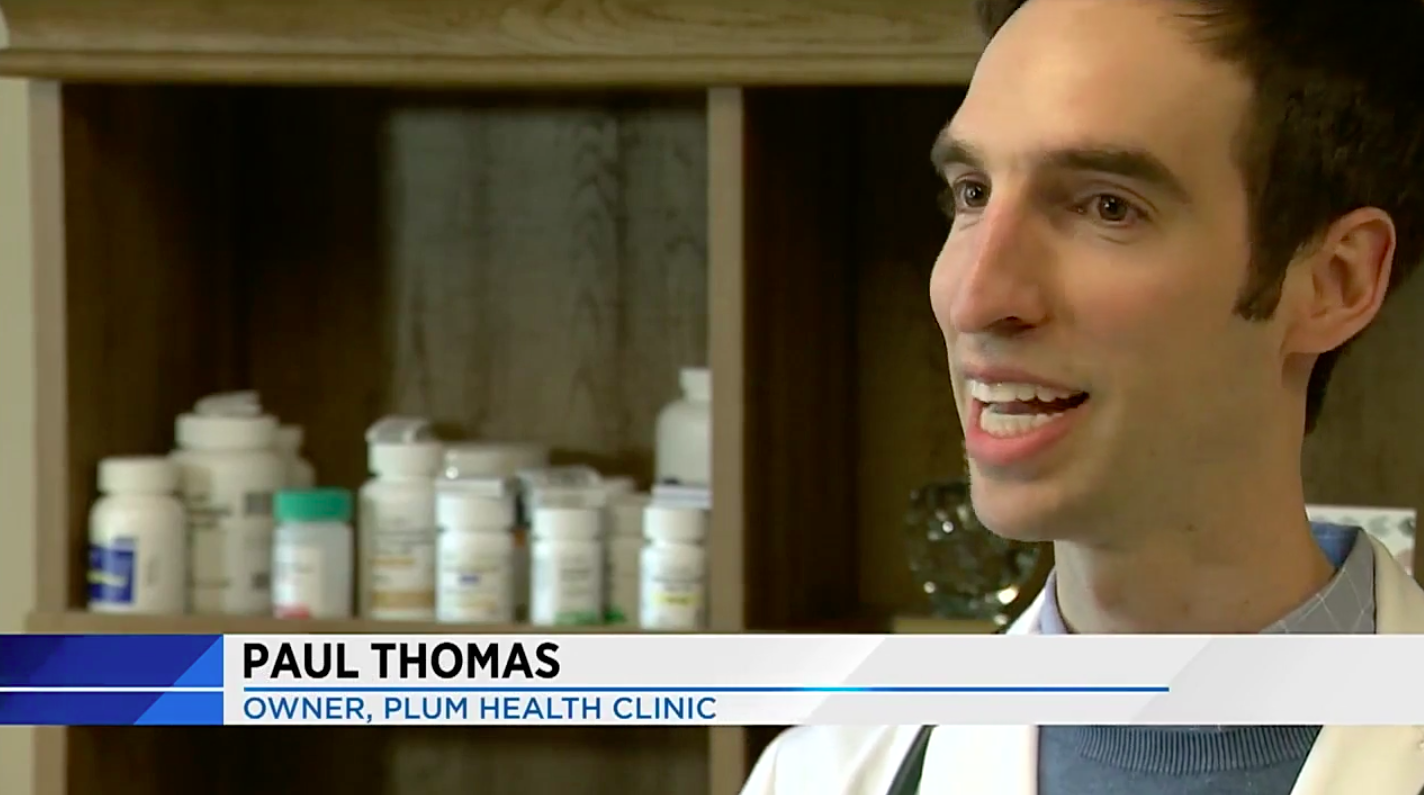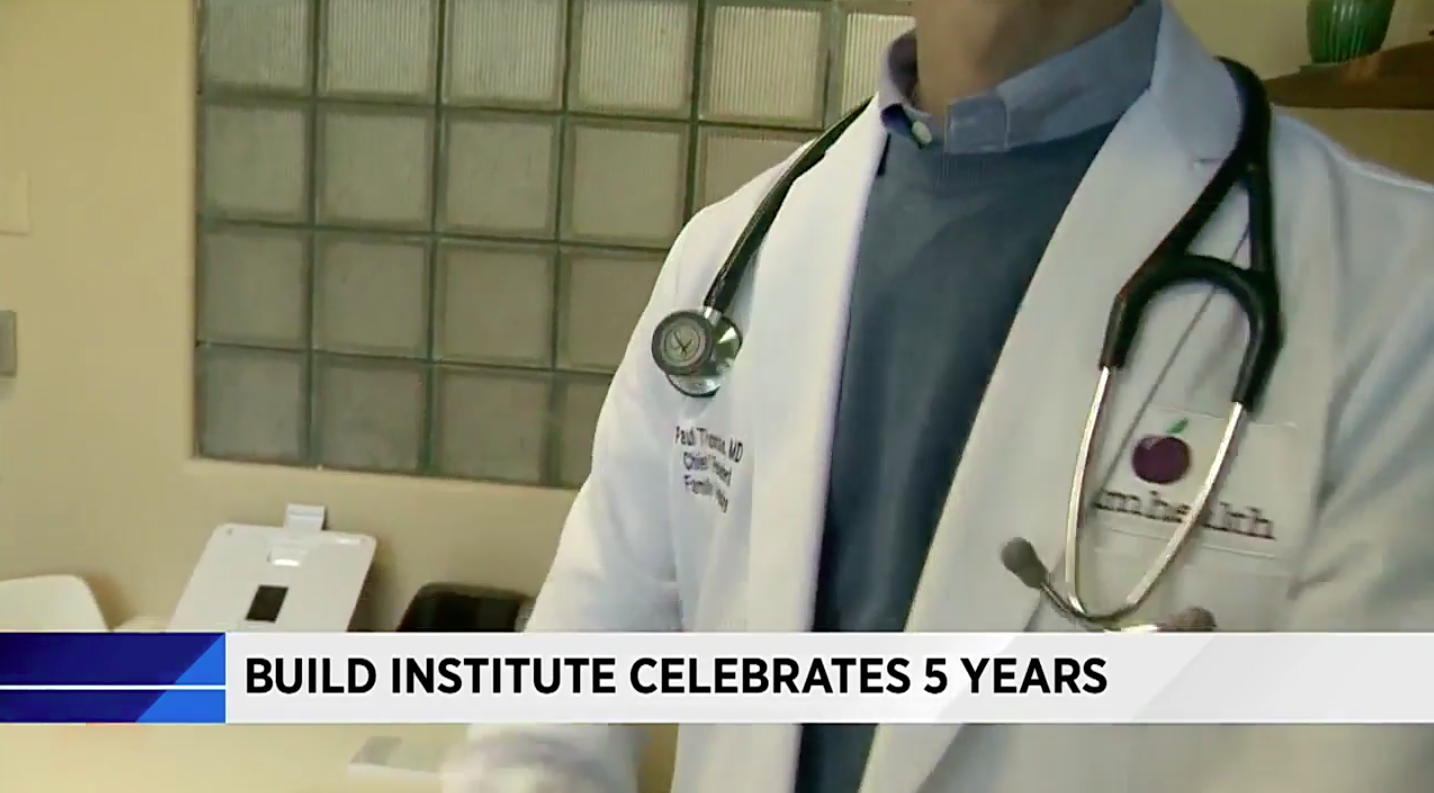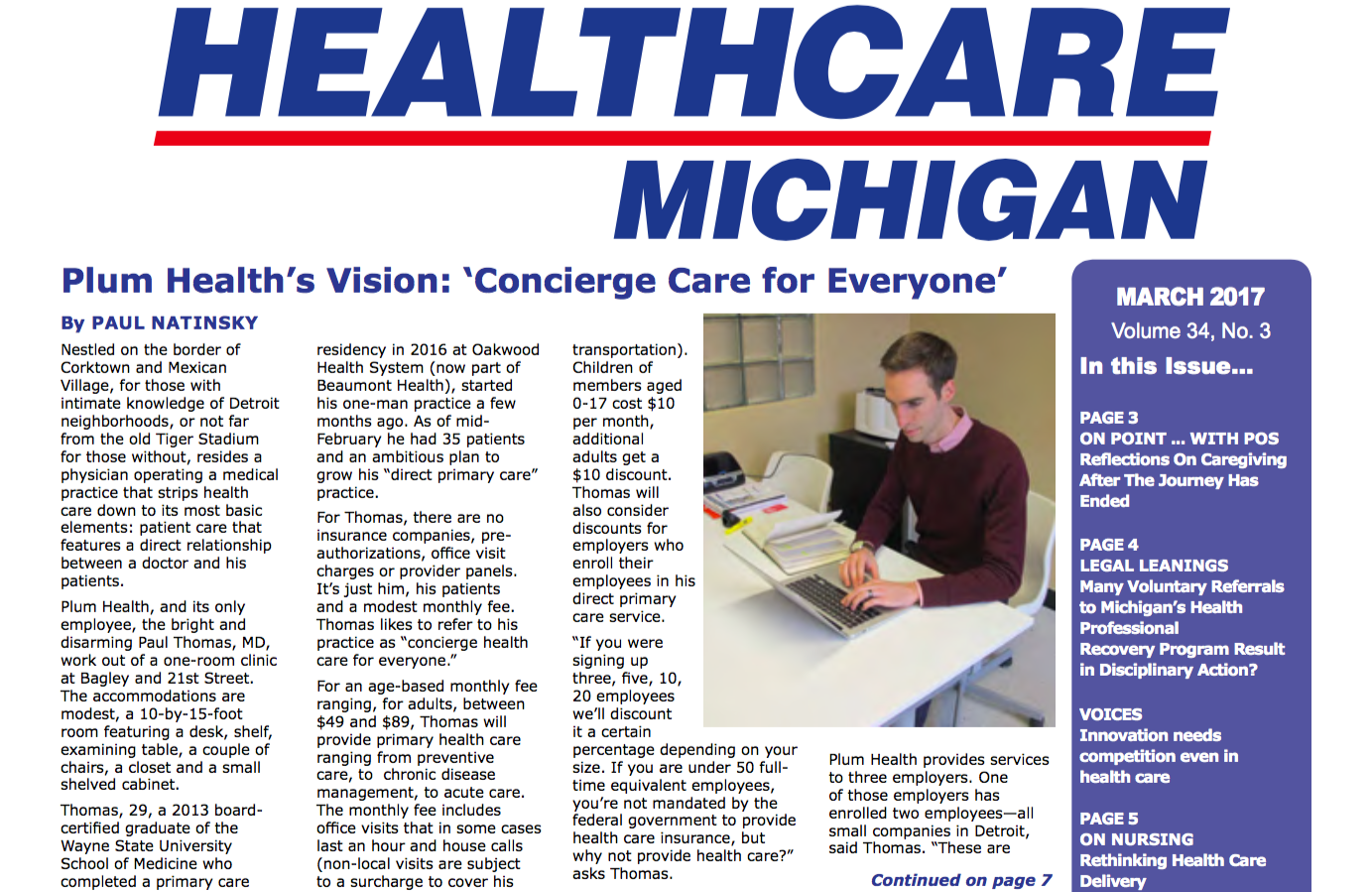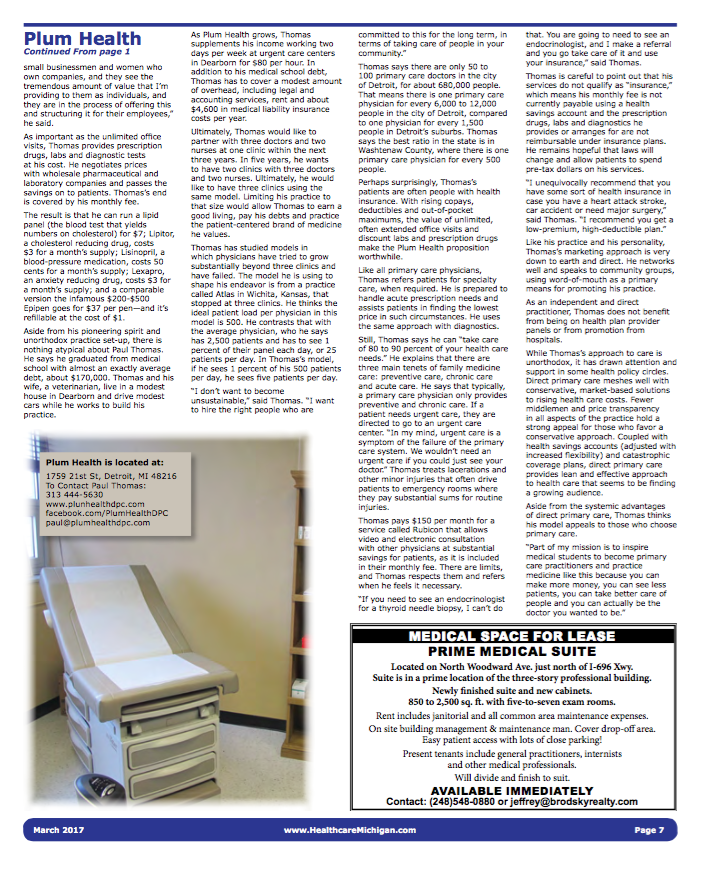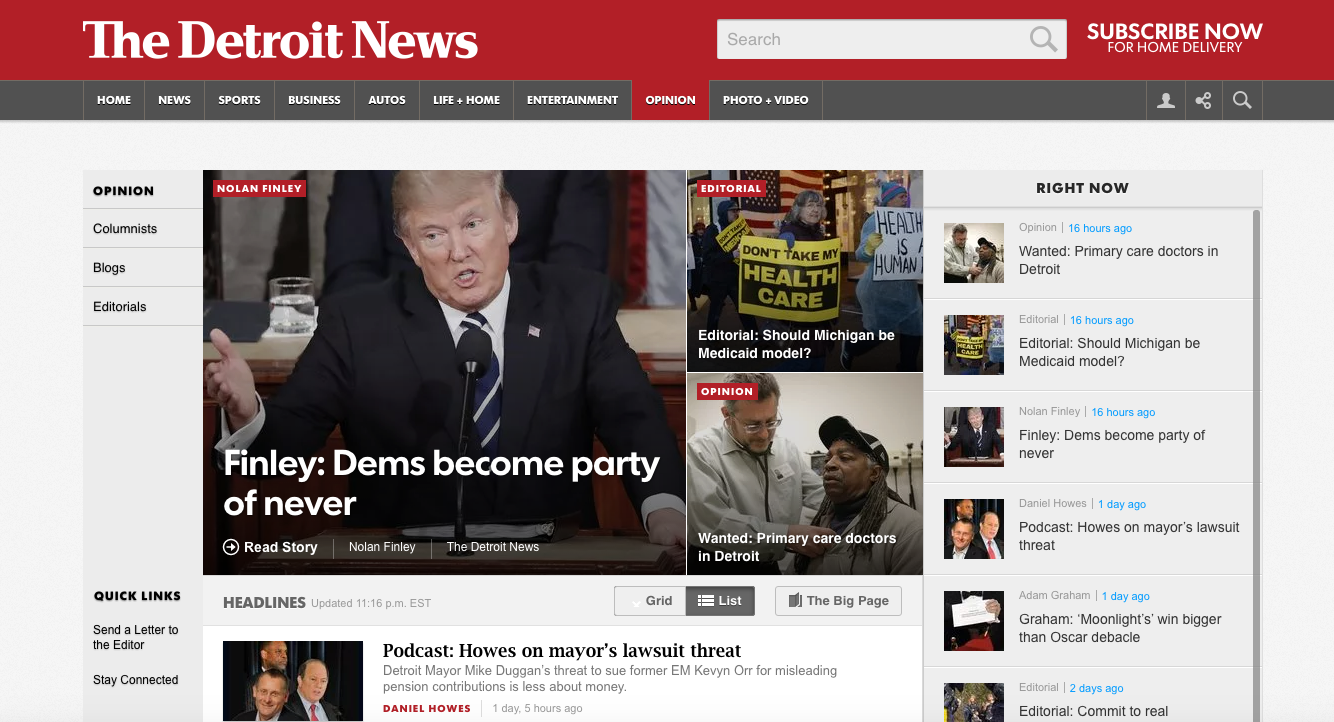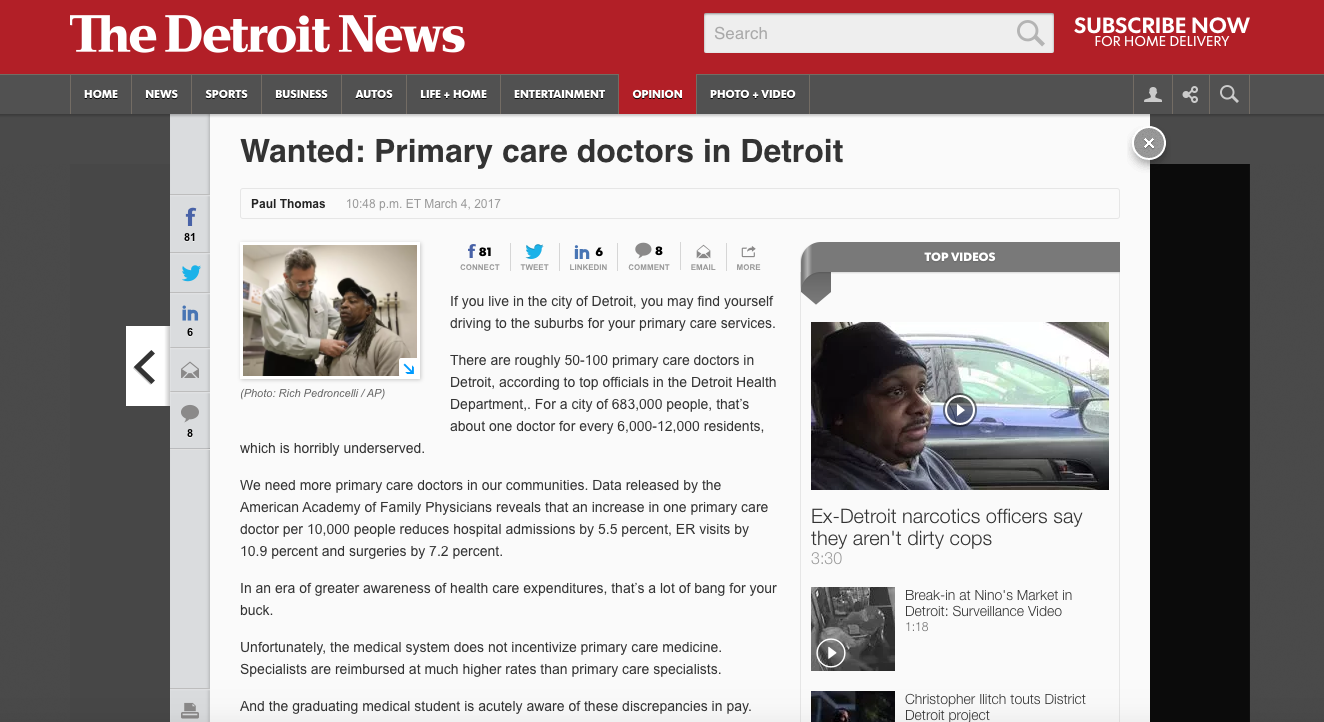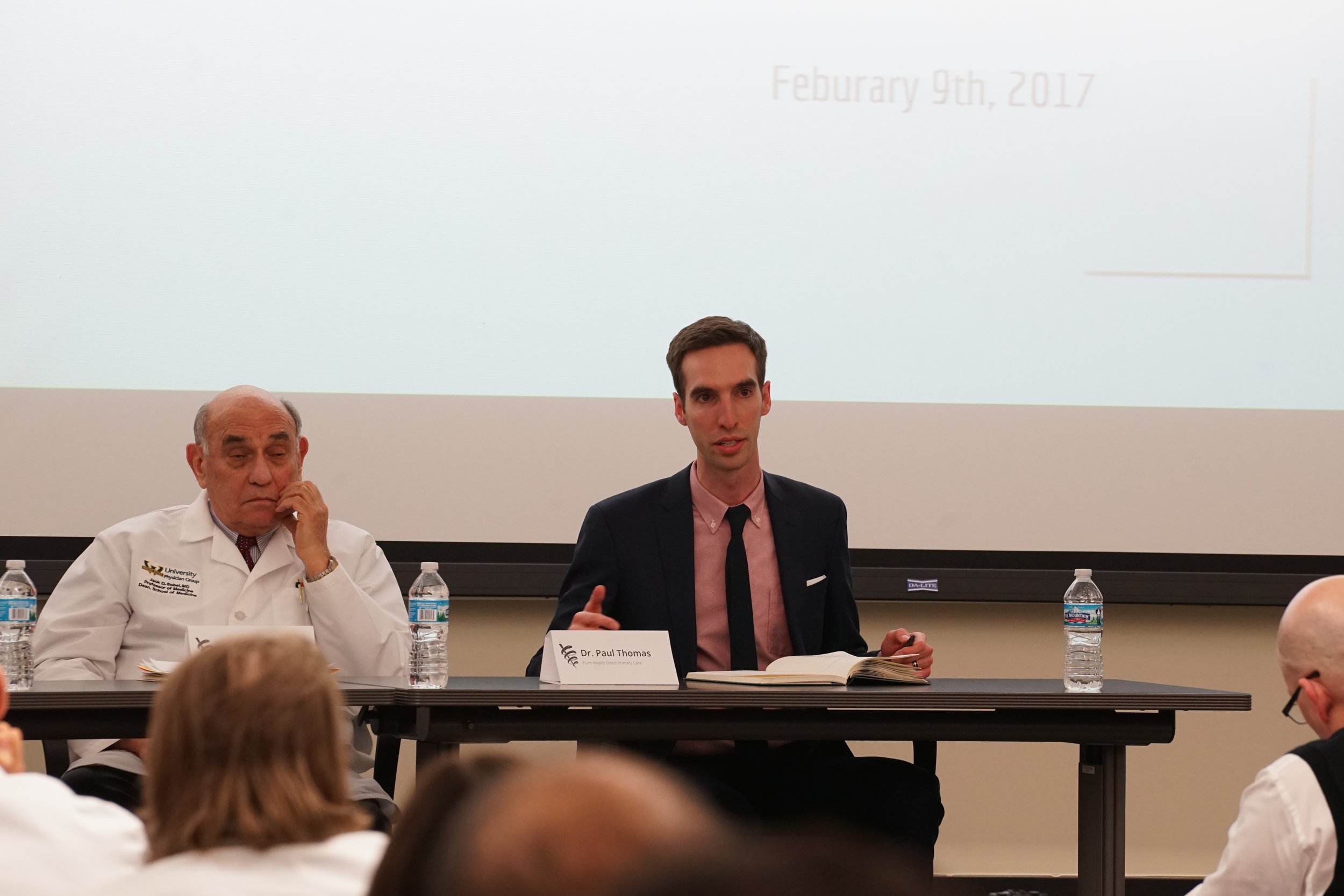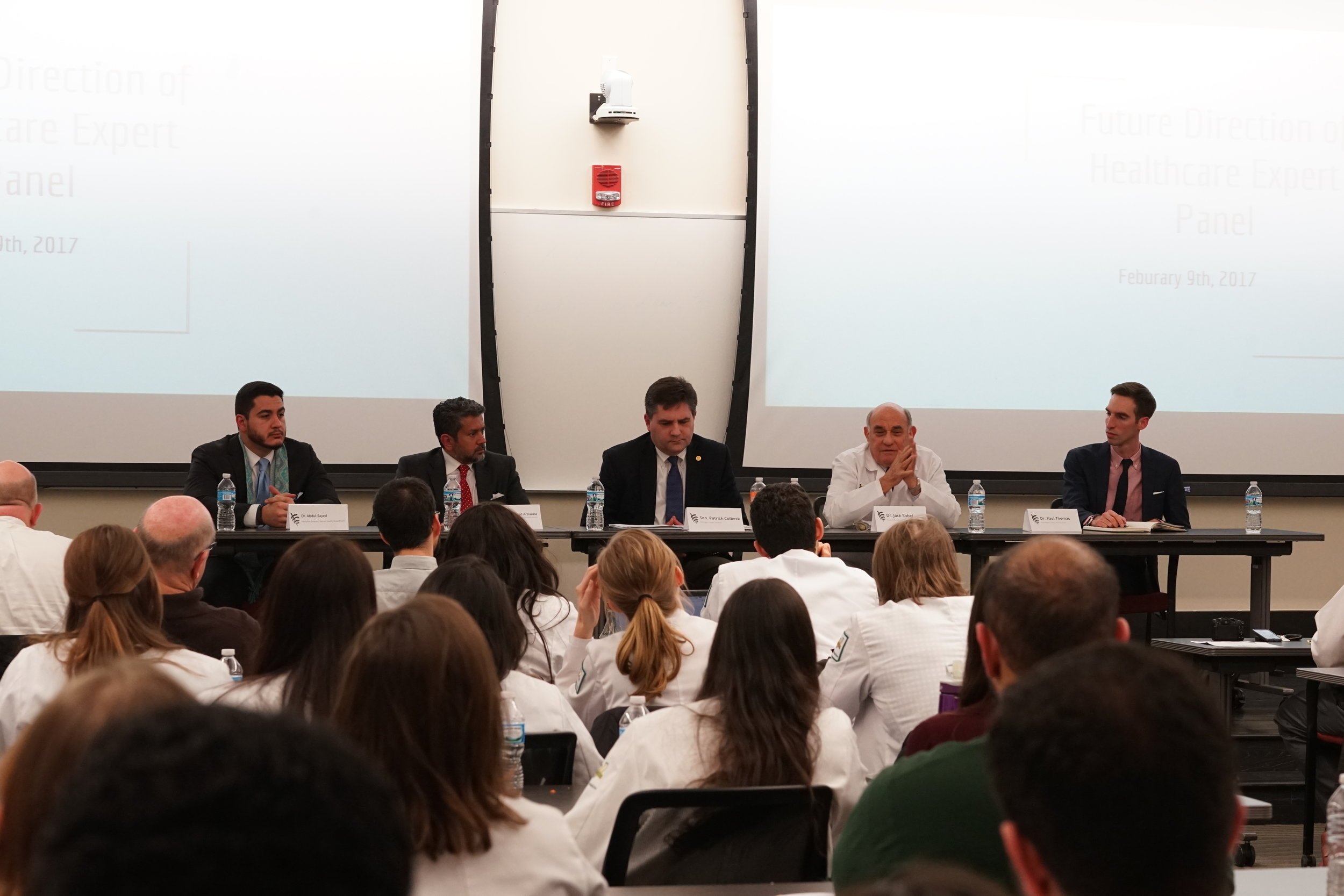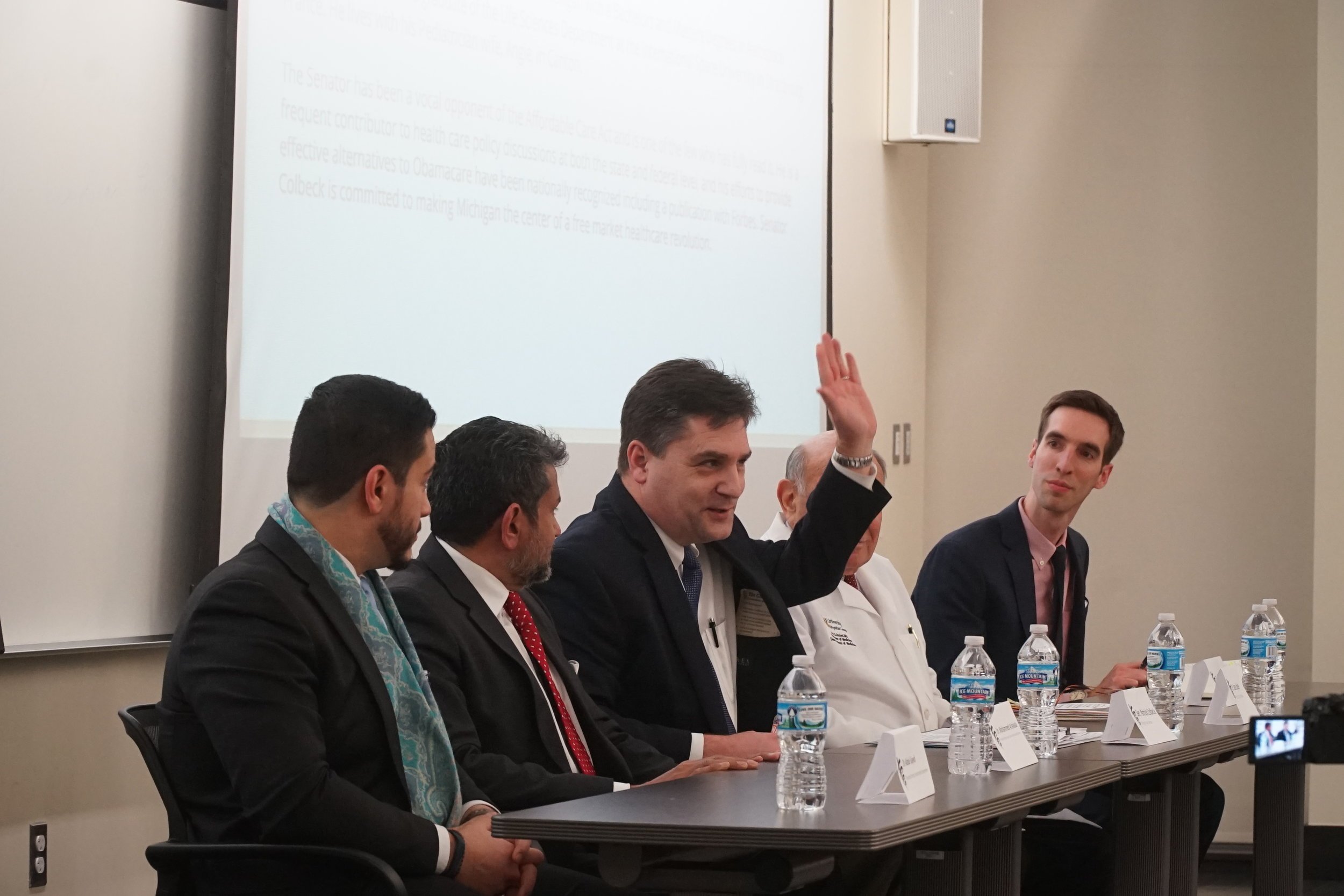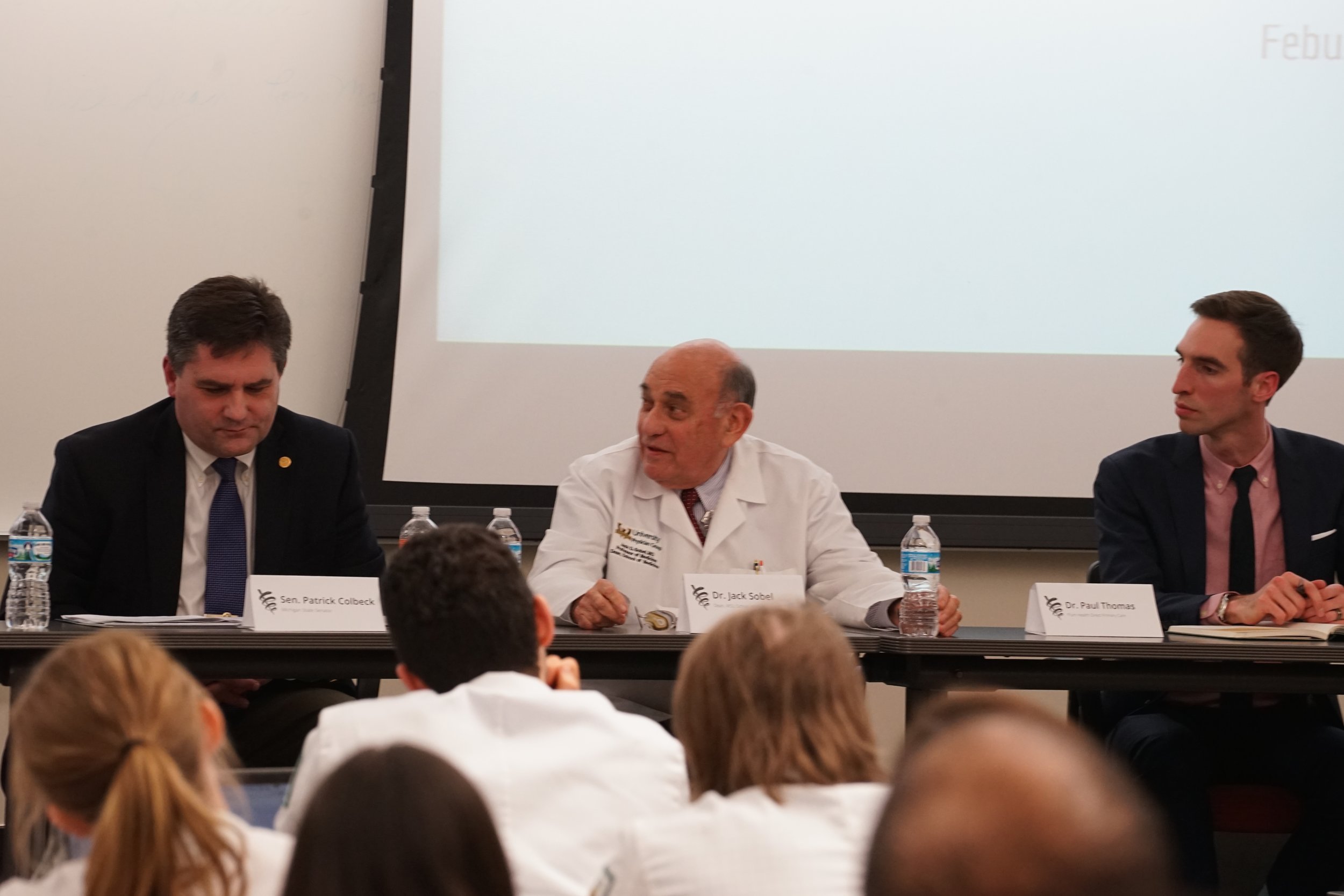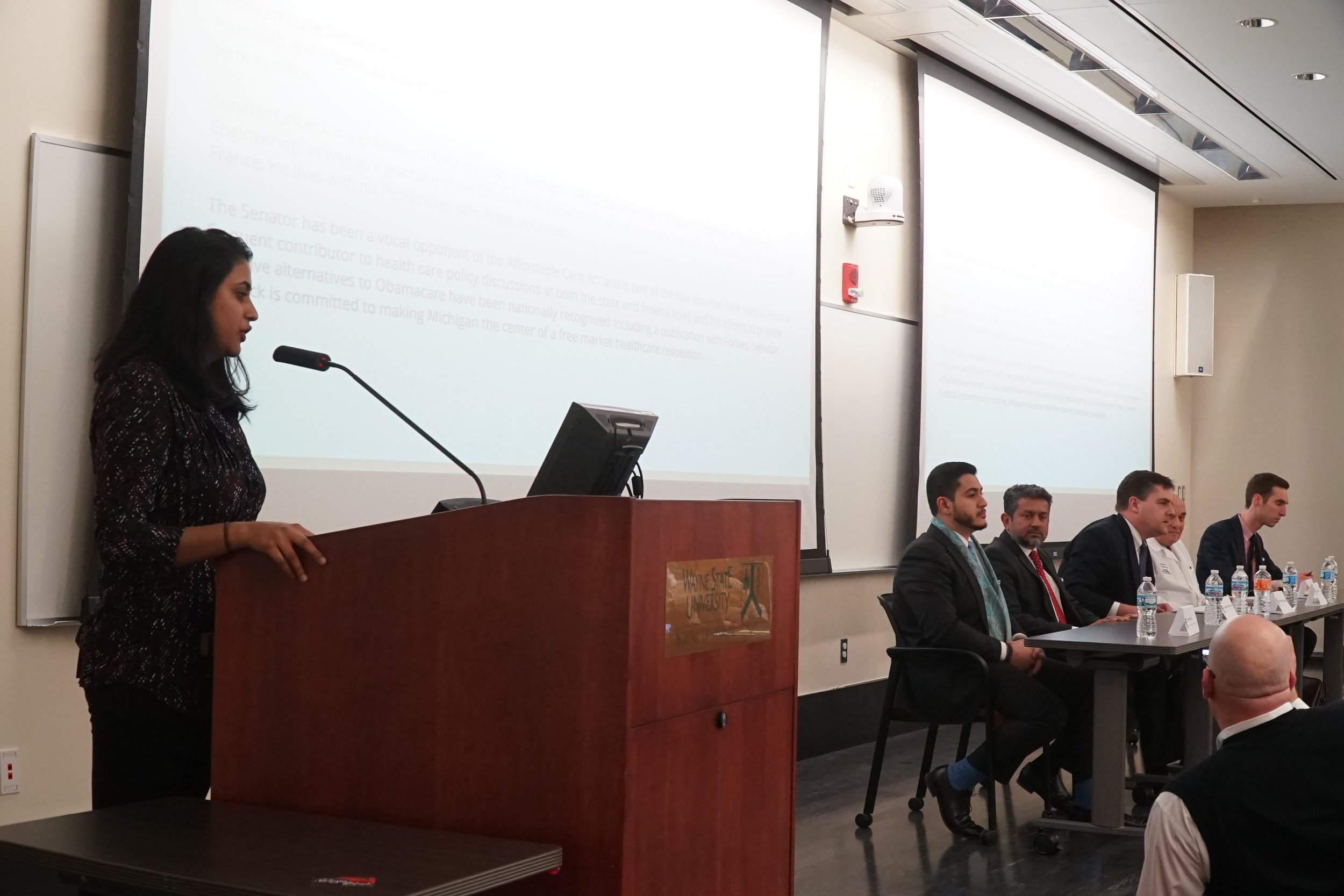Plum Health Blog
Wholesale Medications in Detroit
At Plum Health DPC, we get wholesale medications for our members in Detroit, Wayne County, and Southeast Michigan. Just this week, I've helped more than a few of my patients or members with wholesale medications.
For example, I had a patient with lower back pain due to paraspinal muscle tenderness. A common treatment for this is with Cyclobenzaprine or Flexeril. This medication can retail for $5 - $15 at retail pharmacies. At Plum Health, we wholesale Flexeril for 2.8 cents/pill. When the patient got the bill for $0.28, he thought that it was an error, but that's the actual cost of the medication.
Next, I have a patient with chronic allergic rhinitis. He told me that he got Flonase or Fluticasone at Costco at a bargain price of $48 for 3 bottles. At Plum Health, we wholesale Flonase for $7.26. He was pleasantly surprised by the cost savings!
Finally, I had a gentleman with Diabetes and High Cholesterol. He had been paying roughly $50/month for his medications at the retail pharmacy. At Plum Health, we were able to wholesale the Lisinopril, Glipizide, and Simvastatin for under $5, essentially saving him $45/month!
These are just a few examples of how we save people money on their medications and on their healthcare. If you have any questions about how we can help you, don't hesitate to call 313.444.5630 for a free consultation.
Thanks for reading and thanks for watching,
- Dr. Paul with Plum Health
Plum Health at Rock CF Rivers Half Marathon
This morning, I was out at the Rock CF River's Half Marathon and 5K in Grosse Ile, Michigan. Rock CF is an organization that advocates for patients with Cystic Fibrosis across the country, and their global headquarters are in Detroit on West Grand Boulevard.
Emily Schaller is the founder of Rock CF and organizes this race to raise money for the organization. The Rivers Half Marathon started at Grosse Ile Middle School and ran the perimeter of the island. The Rivers 5K started at the Grosse Ile Airport and ended at the GI Middle School.
I was representing Plum Health DPC as the race doctor and I was stationed at Mile 7.5/8ish. Fortunately, there were no major course injuries to report and things ran smoothly - no pun intended!
I'm really proud of the Rock CF organization, their mission, and the work that they do in the community. If you'd like to be a part of Rock CF and/or donate to people with Cystic Fibroses, hit up their website!
As a physician, I recommend 30 minutes of exercise each day for 5 days each week. That's about 150 minutes of exercise each week. Aerobic exercise like running a 5K is a perfect way to get and stay in shape. Exercise has innumerable benefits from better heart and blood vessel function to better control of diabetes, high blood pressure, and depression.
Now that the weather is nicer, it's the perfect time to develop healthy habits like running or walking every day. My pro tip is this: hang your workout clothes on your bed post and make exercise the first thing you do when you start your day.
To learn more about how you can become healthier, reach out to me here!
Thanks for reading and have a great day,
- Dr. Paul with Plum Health
Plum Health DPC Featured in The HUB Detroit
This week, we were featured in an article by The HUB Detroit, a local publication that focuses on Detroit neighborhoods. From their mission statement, they emphatically state: "our focus is Detroit’s neighborhoods. TheHUB’s multimedia platforms were created to give Detroit city residents and supporters a dedicated voice and space to discuss the real issues surrounding viable city neighborhoods."
I am happy to be working in the neighborhoods in the City of Detroit, serving folks of diverse backgrounds via my clinic in Southwest Detroit. The article touched on this point by relating that I am embracing the neighborhood where I practice medicine. It's true - I spend a lot of time reaching out to folks in the community like small business organizations, small business owners, and non-profit groups like the Ford Resource and Engagement Center.
Our goal is to improve the health and wellness of not only individuals, but also the community and we achieve this by delivering affordable, accessible healthcare in our community.
I really appreciate the time that the editorial staff took to share the Plum Health story, and I'm excited for what the future holds for health in our City and our region.
Thanks for reading, and have a wonderful day,
- Dr. Paul with Plum Health
Plum Health DPC in Grosse Pointe
On Tuesday night we were invited to speak to a group called the Eastside Republicans at the Grosse Pointe War Memorial in Grosse Pointe Farms, Michigan about Plum Health and Direct Primary Care.
Other speakers were Chad Savage, MD of YourChoice Direct Care and Senator Patrick Colbeck, a staunch supporter of Direct Primary Care in Michigan. This is a part of a tour across the State, a series of events across Michigan where Senator Colbeck and Direct Primary Care doctors talk about free market options in healthcare.
This was the largest crowd on this tour, and there were about 100 people in the audience. There were some great questions asked and good information shared about DPC, health shared savings plans, and unique solutions for employers.
The next event will be in St. Clair Shores on April 24th - mark your calendars!
Thanks for reading and have a great day,
- Dr. Paul with Plum Health
Plum Health at Build Institute
This week, I was invited to sit on a panel at the Build Institute to celebrate their 5th year of investing in and uplifting small businesses in the City of Detroit. Fortunately, I was able to take and graduate from a Build Institute course over the summer of 2016.
This Build Institute Course allowed me to develop and solidify my business plan, make connections with fellow entrepreneurs, and tap into Build's ever-expanding network of small business owners and service providers. Through Build, I was able to be a part of big events like Detroit Homecoming sponsored by Crain's Detroit. I was also able to meet future customers and future service providers like my lawyer.
On Wednesday, I was invited to sit on a panel of small business owners who have benefitted from the Build Institute's unique programming. It featured Lana Rodriguez of Mama Coo's Boutique, April Anderson of Good Cakes and Bakes, April Boyle of Build Institute, and Christianne Malone of Build Institute.
After the panel, Steve Garagiola of Local 4 News (WDIV) asked if I'd be interested in an interview. I invited him to my office at 1759 West 21st Street, Detroit MI, and he came over with his cameraman. During the interview, we discussed the basics of what we provide at Plum Health DPC.
I was surprised at how fast the turn around time was for the interview, as it aired during the 6 pm news on Detroit's Local 4 News. In case you missed it, here's the interview!
In addition, Kurt Nagl, a writer from Crain's Detroit wrote an article about the event and it appeared on their website on Tuesday.
Thanks so much for reading and watching!
- Dr. Paul with Plum Health DPC
What is Family Medicine?
Hello, this is Dr. Paul Thomas with Plum Health DPC and I'm a Family Medicine Doctor in Detroit. I operate Plum Health Direct Primary Care, which delivers affordable, accessible health care services in Detroit.
This week, I'm talking about Family Medicine Week, an official announcement from Governor Rick Snyder that makes February 19th - 25th Family Medicine Week. I'm a month late in bringing this up, but it's still important to recognize Family Medicine and the contribution of Family Medicine Doctors across the State of Michigan.
For starters, Family Medicine Doctors compete four years of undergraduate education, four years of medical school, and three years of residency. That's 11 years after high school and 7 years after college. Furthermore, some Family Medicine Doctors sub-specialize within Family Medicine.
They complete a 1 year fellowship to become Sports Medicine doctors, or Family Medicine doctors that sub-specialize in adolescent medicine, geriatric medicine, addiction medicine, etc...
The point is that Family Medicine doctors are highly trained, and specialize in taking care of the whole patient in the context of the family and the community.
Family Medicine doctors care for people of all ages and stages! We help deliver babies, we help infants meet developmental milestones, we complete school, work, and sports physicals, we take care of injuries like fractures and lacerations, and we take care of chronic conditions like diabetes, high blood pressure, and asthma.
Family Medicine doctors also work across a variety locations. Family Medicine doctors work in emergency departments, in-patient hospital settings, and out-patient clinics. Family Medicine doctors lead health departments for Cities, Counties, and States. Family Medicine doctors teach at medical schools, volunteer at homeless clinics, and travel abroad with organizations like Doctors without Borders.
Personally, I love being a Family Medicine Doctor - I love taking care of people regardless of their age, race, gender, and orientation. I love being able to offer care and compassion to those who need it, along with the standard medical care.
Finally, we need more Family Medicine doctors to create healthy communities, healthy cities, and a healthy nation. Family Medicine doctors address small issues before they become big, complicated problems. Family Medicine doctors and Primary Care Physicians can effectively increase the health of a community and lower the cost of care in that community.
Primary Care and Family Medicine is vital, and I'm glad that we have a week to recognize the work that Family Medicine doctors carry out each day in the State of Michigan.
Thanks for your time, and have a wonderful day,
- Dr. Paul Thomas
Match 2017 at Wayne State University School of Medicine
This week, I was happy to hear about the highly successful match at my alma mater, Wayne State University School of Medicine. On Friday, March 17th, WSU SOM matched 97.3% of its graduating seniors into residency programs! This rate is much higher than the national average of 93%. In addition, 40% of those new doctors will be training in primary care specialities.
This is one of the points that I continue to emphasize: we need more primary care doctors in this country, in this state and in this region. And training primary care doctors begins with inspiring medical students to chose primary care specialties like Family Medicine, General Internal Medicine, Pediatrics and Obstetrics/Gynecology.
In other news, this Saturday I volunteered at Cass Clinic. I try to get out to Cass every month, and this month I helped the medical students take care of about 15 or more homeless, uninsured, and otherwise medically underserved people in the community. This mostly consists of managing blood pressure and diabetes as well as performing physical exams for work or school opportunities, just like all other people.
Finally, I'm talking about the EpiPen - $600 if you buy it via Mylan Pharmaceuticals. What you're paying for is a patented delivery device as the actual epinephrine medication costs $2 at wholesale. When I make this for my patients, I use an AutoInject 2, which costs $35 and insert the epinephrine into a syringe and place the syringe in the Auto Injector.
My Beta name for this product is the Epinephrine Delivery Device (EDD). I probably need to come up with a better name, but it is epinephrine within the AutoInject 2 and it is roughly equivalent to an EpiPen. Here's the video from Saturday:
Stay tuned for more updates!
- Dr. Paul with Plum Health DPC
Plum Health on Small Talk with Mark S Lee
This week, I was invited onto Small Talk with Mark S. Lee! I first met Mr. Lee at the Motor City Match Round 6 showcase in our building, 1759 West 21st Street, Detroit, MI, when then Vice President Joe Biden came to town. I recognized Mr. Lee as he is a frequent contributor to Crain's Detroit Business and a thought leader on small business growth in Detroit.
This month, he invited me onto his radio program, which airs on CBS Detroit, AM 1270 at 8:00 am every Sunday morning.
Not only is Small Talk broadcasted in the local market, Mr. Lee has faithful listeners from across the country as Small Talk is broadcasted nationally through CBS Radio's online and digital platforms. Some of these listeners write in to the show to express their gratitude as Mr. Lee covers small businesses, small business owners, and discusses a wide range of issues pertaining to starting and running a business in Detroit. He even has some listeners who want to come to Detroit to start a business!
During the show, we talk about Detroit, Direct Primary Care, Plum Health DPC, and some of the issues with Health Care as we know it today.
I really appreciate Mark's invitation, and I hope you enjoy the broadcast, which you can find here, as well as the video of the interview, which is here:
Thank you for reading and have a great day!
- Dr. Paul with Plum Health
P.S. you can follow Mark S. Lee on Twitter, @LeeGroup, and read more about what he does on his website, Lee Group Innovation.
A photo with Mr. Lee after the interview on Small Talk with Mark S Lee. Photo credit: Mark S. Lee.
Plum Health at Bamboo Detroit
This week, we held office hours at Bamboo Detroit, on Washington Boulevard in the Central Business District of Detroit. If you follow us, you know that we've spent time at WeWork Detroit and are looking to engage with PonyRide in the future.
So far, we've found that the majority of our customers are small business owners or folks that are responsible for their own health care expenditures. Once these entrepreneurs know about us and what we do, they are excited about our brand and what we have to offer.
That's why it's so important for us to go out into the community and meet entrepreneurs where they're at! So many times, we get so caught up in our work that we don't take the time to take care of ourselves. With Plum Health, we work on your schedule, not the other way around. And, as an entrepreneur myself, I know the hustle and work ethic that it takes to be successful, and it's easier for me to relate with my members who are entrepreneurs and vice-versa.
Strategy aside, Bamboo Detroit is an excellent co-working space in the Central Business District (CBD) in Detroit. They have offices, hot desks, and great amenities for growing entrepreneurs. They invited me over for an office hours type session, and this gave me an opportunity to answer any questions their entrepreneurs had about health and wellness. I had a few moments to spare, so I shot this video - enjoy!
Thanks so much for reading and watching!
- Dr. Paul with Plum Health DPC
Plum Health Featured in Healthcare Michigan
On February 9th, I was invited as a panelist at the Future of Healthcare event at Wayne State University School of Medicine. While at the event, I met Paul Natinsky, a writer for Healthcare Michigan. Friendly, outgoing and genuinely interested in the work that I was doing, Mr. Natinsky and I scheduled to meet up a few weeks later.
When Mr. Natinsky came to our Plum Health office, he brought his tape recorder and camera, and most importantly he brought his insight and some tough questions. We talked for well over an hour on a variety of subjects. This week, he released his notes from that meeting in the form of a publication in Healthcare Michigan.
The work that we're doing with Plum Health is the feature story in the March 2017 issue, and we couldn't be happier about spreading the word about Direct Primary Care in Michigan. You can read the article in full, here.
Thanks for reading, and have a wonderful day!
- Dr. Paul
Medicaid Pilot Program in Michigan
Last week, we met up with Senator Patrick Colbeck in Lansing along with other legislators like State Representative Ned Canfield and other Direct Primary Care Doctors like Chad Savage of YourChoice Direct Care.
Currently, the State of Michigan spends 1/4 of the State Budget on health care programs like Medicaid. What I'm advocating for is better primary care and preventive services that create value for people in our State, that decreases costs over the long term by providing better care on the front end. The British say an ounce of prevention is worth a pound of cure, and by focusing more on primary care and prevention, I believe that we can take better care of our neighbors and save the State of Michigan money, money that can then be used to fix our infrastructure and spur economic growth and activity in our state.
Pragmatically, it may start with a Medicaid pilot program. Instead of giving Medicaid money to insurance companies to manage patients, that money is given directly to primary care doctors on a monthly basis to care for a panel of medicaid patients. The onus is then on the primary care doctor to provide excellent health care services for their community members and create more value and better health outcomes at a lower cost. I believe that this type of arrangement will allow for more holistic care, better access for patients, better outcomes, and cost savings.
I am excited about the prospect of this work and happy that we have some courageous leaders in this State who are willing to address these difficult problems head on.
Thank you so much for reading,
- Dr. Paul with Plum Health DPC
What Should I Read During My Pregnancy?
This week, I met with a young woman who is beginning her journey with pregnancy, child bearing, and starting a family. This is an exciting time and I'm happy to help young families as they make this transition. She asked me a question that I haven't been asked before, "what should I read during my pregnancy?"
As an avid reader, I wanted to recommend something. But, the truth is this: I haven't read any pregnancy books! I've been pushing this off until my own family becomes pregnant. I still wanted to answer the question, so I took it to my social media community and they showed up with some great responses.
First, they recommended books! This seemed like an obvious first response, and they had good reasons for each one that was recommended.
- What to Expect When You're Expecting is a perennial classic and best-seller, but it receives some criticism for being too "harsh, punitive, and almost like a parody". Or as a friend on social media put it: "What to expect when you're expecting scares the living crap out of me."
- The Mayo Clinic Guide to a Healthy Pregnancy is a guide written by Doctors who are Parents, too. This is "good for all the technical stuff", per social media.
- The Wonder Weeks
- Ina May's Guide to Childbirth and also the Guide to Breastfeeding
- The Happiest Baby on the Block
- HypnoBirthing, Fourth Edition
- Bringing Up Bébé, which gives a French perspective on parenting on child raising.
- The Expectant Father, which is a dad's guide to pregnancy
- You and Your Baby, written by an Ob/Gyn, Dr. Laura Riley
- Expecting Better, a somewhat anti-establishment take on pregnancy and the birthing process that re-examines some of the hard and fast rules of pregnancy put forth by the medical establishment.
- Nursing Your Baby, recommended by a Nurse Practitioner in the group.
However, some of the respondents in the group said don't read anything! "Too many opinions, too much to think about. Just go with the flow and trust your instincts." In fact, this sentiment was written by a family medicine doctor and colleague of mine, and it was echoed by another family medicine doctor.
This "read nothing" approach is an interesting take on the subject, but I second guess their thrust here because they have a significant amount of medical knowledge and practical experience in taking care of pregnant women and their infants. Most lay people and non-doctors lack this knowledge and experience, and that's why non-doctors gravitate towards reading books about pregnancy, child-bearing, and child-rearing: the unknown can be frightening! And some of that fright can be alleviated by reading and learning from the experiences of others.
Finally, people mentioned subscribing to daily/weekly emails or downloading certain apps. This was best described by a friend on social media: "I read a few different books (i.e. What to Expect), but I found that subscribing to receive emails was most useful (what to expect, the bump). They gave quick summaries of important issues. Also, pregnancy apps have tons of good info and daily updates on what's going on in your pregnancy at that time." Another person recommended the BabyCenter app and the BabyCenter website.
My recommendation? As I said, I haven't read any of these books, used any of these apps, or carried a child to full term myself, so take this cum grano salis: pick 2 - 3 resources and enjoy the experience of pregnancy!
Thanks for reading and thanks to the community of moms, parents, and grandparents that responded!
- Paul Thomas, MD
Plum Health on Detroit is Different
This week, Plum Health DPC was featured on Detroit is Different with Khary Wae Frazier. Khary is the founder of Detroit is Different, which discusses the rich cultural tapestry of Detroit and features the people and businesses that make up this great city. You can check out our episode on his website, here.
You may know Khary from his work with the Motor City Match - he makes videos for the Motor City Match, featuring entrepreneurs that have won the competitive business challenge. Here's the video that he made for Plum Health DPC.
Here's how Khary describes the work that he does:
Detroit is Different is about culture, and business makes up a lot of that for our city. The products, services, and the style/ process in which they’re delivered are uniquely Detroit. The gate of the Detroit River has welcomed world travelers for centuries. Today the port remains America’s busiest border for importing and exporting goods. I’ve always felt the best asset we’ve offered the world are Detroiters.
Here's the video before we went live on his Podcast!
Thanks so much for reading and watching,
- Paul Thomas, MD
Health Coverage for your Employees
With changes looming for healthcare in the United States, many individuals and employers are on edge and uncertain of what may come down the legislative pipeline. In my community small business association, in Corktown Detroit, a few questions were asked about the Affordable Care Act and the mandates set forth therein.
Question #1: at what size does your business need to offer health insurance for your employees?
For now, if you have 50 or more full-time equivalent employees, you must provide health insurance coverage, or you have to pay a fine. This is known as the "employer mandate" in the Affordable Care Act, aka ObamaCare. This coverage must apply to at least 95% of your full-time employees and their dependents up to age 26. Spouses are not included in this mandate. More information on this topic can be found here.
Question #2: What if one of your employees already has their own health insurance coverage?
Employees with their own insurance plan can keep their current insurance plan. They can also cancel their plan and sign up with their employer's coverage plan. As long as you the employer offer coverage, you won't be fined. But, the employee can't get a marketplace subsidy if the employer's coverage meets affordability and minimum value guidelines.
Question #3: If your employee switches coverage, can they still see their own doctor?
On choosing to keep your own doctor, you can still go to your doctor, but you may have to pay an out of pocket fee. For example, if you have NGS (or Oakwood Hospital Insurance), you are typically pushed to Oakwood doctors. If you decide to see a doctor at Henry Ford, you will not be forbidden from seeing them, you just will have to pay more out-of-pocket because they are not an "in-network" doctor. HAP is the insurance typically coupled with Henry Ford. Blue Cross Blue Shield allows for greater flexibility in terms of choosing doctors as it is accepted by most physicians.
Question #4: How do you find services, doctors, and specialists covered by your insurance?
For finding doctors that accept your insurance, the easiest way is to look up the doctor online and see if they accept your insurance. Alternatively, you can call their office and ask, "do you accept HAP/NGS/Cigna/BCBS?" Finally, you can call the number on the back of your card and ask for your choices for primary care doctors or specialists that are covered by your plan in your neighborhood/area.
Question #5: Our company has less than 50 full-time employees, We aren't making enough money to cover our employees with health insurance, but we would like to provide some sort of health care. What options do we have?
This is the ideal situation for Direct Primary Care practices like Plum Health DPC and many small businesses find themselves in this situation Because we offer an affordable, accessible health care service at a known cost, you as the employer know exactly what you're getting and the price you will pay. For $49/month for adults under 40 and for $69/month for adults over 40, you have access to our doctor and our primary care services when you need it.
Question #6: So, under your plan at Plum Health DPC, what is covered and what isn't covered?
We can take care of 80 - 90% of your health care needs, including coughs, colds, cuts that need stitches, preventive care, and disease management for conditions like high blood pressure, diabetes, asthma, eczema, etc... We also offer wholesale medications, at-cost labs, and at-cost imaging services.
What we can't cover are things like heart attacks, strokes, and auto accidents that are severe. For these issues, you need to go to the hospital or the emergency department for immediate care. This is why we recommend that all of our customers have some sort of catastrophic coverage plan that covers emergency and hospital care.
If you have any further questions about what we do, don't hesitate to reach out!
- Paul Thomas, MD
Opinion Published in the Detroit News
This week I wrote an opinion piece and it was published by the Detroit News! I'm very excited about getting the word out about the benefits of Primary Care and the work that needs to be done to address the health disparities in our city and in our region. Here's the link. A sincere thank you to Ingrid Jacques for giving me the opportunity to write this.
There are always constraints, with time and with resources, and the article was edited to fit the allotted space in the Sunday paper. So, here is the essay that I wrote in its entirety prior to editing by the News:
If you live in the City of Detroit, you may find yourself driving to the suburbs for your primary care services.
According to top officials in the Detroit Health Department, there are roughly 50 – 100 primary care doctors in Detroit. For a city of 683,000 people, that’s about 1 doctor for every 6,000 – 12,000 residents, which is horribly underserved.
Interestingly, Wayne County as a whole has 1 primary care doctor for every 1,515 residents. But, the supply of doctors is not equitably distributed across communities within Wayne County. Areas like Grosse Pointe and Dearborn have a relative saturation, while cities like Inkster and Detroit remain underserved.
By contrast, Washtenaw County has 1 primary care doctor for every 598 residents and Oakland County has 1 primary care doc for every 655 residents. These are more equitable and desirable ratios.
We need more primary care doctors in our communities. Research has shown that as the number of primary care doctors increases, health outcomes improve and costs decrease.
Data released by the American Academy of Family Physicians reveals that an increase in one primary care doctor per 10,000 people reduces hospital admissions by 5.5%, ER visits by 10.9% and surgeries by 7.2%.
In an era of greater awareness of healthcare expenditures, that’s a lot of bang for your buck.
Unfortunately, the medical system does not incentivize primary care medicine. Specialists like Orthopedists, Cardiologists and Dermatologists are reimbursed at much higher rates than primary care specialists like Family Medicine doctors, General Internal Medicine doctors and Pediatricians.
And the graduating medical student is acutely aware of these discrepancies in pay. The median level of med school debt for the class of 2015 was $183,000 and the total cost may surpass $400,000 if paid over the long term with interest.
As the average student considers an average salary of $443,000 as an Orthopedist or $204,000 as a Pediatrician, choosing primary care medicine becomes economically strenuous.
And for those doctors who choose primary care specialties, primary care offices are often set up in more affluent neighborhoods where the reimbursement levels are higher. These location selection decisions are often out of the hands of individual doctors and dictated by corporate, profit-driven health systems.
This suburbanization of primary care medical services has had a terrible effect for Detroit’s residents. WalletHub recently ranked the City of Detroit as the least healthy major city in the United States, ranking 150 out of 150.
After the WalletHub list was published, the former Health Department Director was quoted in a Detroit News article: “Detroit health chief Dr. Abdul El-Sayed wasn’t surprised with the results, which he blamed partly on the lack of doctor’s offices in neighborhoods, healthy food stores, transportation and safe places to exercise.”
But, there is hope. The longstanding work of free and low cost clinics like CHASS, the Student Run Free Clinic, HUDA, and Joy-Southfield Clinics should be acknowledged. It is also encouraging that the Michigan State University of Osteopathic Medicine Popoff Clinic on Mack Avenue on the East Side is complimenting these stalwarts. Additionally, a Direct Primary Care service, Plum Health DPC, in Southwest Detroit/Corktown is providing another option for Detroit residents.
Finally, as Downtown, Midtown and New Center become more sustainable, primary care services should begin to take hold with potential spill over benefits for adjacent neighborhoods.
Paul Thomas, MD
Family Medicine Doctor with Plum Health DPC
Thank you for reading, and have a wonderful day,
- Paul Thomas, MD
A newspaper clipping from this Sunday's Detroit News about health care and health disparities in the city of Detroit and the potential solutions to address them.
Plum Health at DNewTech Q&A
We were invited to pitch at DNewTech on Wednesday night, and after our pitch, we had 5 minutes to answer questions about Plum Health DPC. Here's the video of the event!
You can see the original Pitch Video here, and you can see our original blog post here.
One of the biggest barriers for people learning about our model is the difference between health care and health insurance. You need health insurance to protect you against the unknown or unforeseen: cancer, stroke, heart attacks and car accidents. Your health insurance should not cover your primary care services, because it introduces a middle man (or several middle men) between you and your doctor, driving up the price of those services.
Health care is what we deliver at Plum Health. As your primary care doctor, I'm not that expensive and you're really paying me for my time. This allows me to answer your phone calls, texts, and emails in a timely fashion. It also allows me to get you in for an appointment when you need it, rather than having you wait for weeks just to be seen.
Health care delivers the basics, like office visits, meds, labs, stitches when you cut yourself, and advice/counseling on lifestyle changes when you need it. Health insurance covers the unforeseen circumstances that are beyond our control.
An analogy is auto insurance. We all have auto insurance, but we almost never use it, unless we're in an accident or our car is stolen. However, we don't expect our auto insurance to pay for the routine maintenance of our vehicles, like oil changes, tire rotations, and gas at the pump. If we did require our auto insurers to pay for these things, it would drive up the prices and make these basic services a hassle. Could you imagine long lines at the pump, prior authorizations to drive to Chicago, and auto insurance that only covers the basic oil, not the Valvoline.
This would be an absurd way to take care of our cars. And I know that cars and people are different, but the way we've structured our health insurance coverage has caused very similar stress points to the imagined scenario above: long wait times to see your doctor, prior authorizations to get imaging studies like CT scans, and health insurance coverage that only covers some medications, but not others.
In Direct Primary Care, we get rid of all of these middle men to deliver excellent, affordable services without the hassle.
Thanks for reading and watching,
- Paul Thomas, MD
Plum Health at DNewTech
Plum Health was invited to pitch at the March 1st DNewTech event. We were one of four small businesses to pitch our idea at the DNewTech event, which brought together roughly 35 people from the small business community in Downtown Detroit. There were some great ideas shared, which are outlined below.
First to take the stage was Sidney Coleman, Co-founder of Aradie, A Technology And Design Company, which began in late 2016. They aim to tackle the social media echo chamber. This can cause some real problems, including a loss of empathy, misinformation, and a loss of constructive debate. Their solution is Pective, a collaborative information platform that can allow people to contribute different perspectives on a specific topic.
Second was Sean Carroll, the Co-founder of Enbiologics, which is Advancing Healthier, Intuitive Burn And Wound Care. Sean talked about his product, HoneyCure, which reduces healing time and drug use like oral antibiotics. Currently, it's approved for veterinary medicine, but they are working on approval for human medical uses.
Then, I was able to give our pitch for Plum Health, which is Delivering Affordable, Accessible Health Care Services in Detroit. Mostly, I focus on telling the story of the business and why it's useful in this economy and in this environment. Throughout the pitch, I try to address the frequently asked questions
Finally, Doron York the Co-founder of SidePitch took the stage. He is connecting tech entrepreneurs and startups with investors and corporate ventures worldwide. They created a Venture Management System and entrepreneurs can start a "Pitchfolio". They have a unique offer until August 31st, where Michigan-based start-ups can pitch for free.
Erin Grant with the Detroit Development Fund, a private, non-profit fund, spoke before the event began. The Detroit Development Fund (DDF) provides small business loans in and around Detroit. They look to loan to small businesses that have been in business for the last 1 year and have generated $100,000 in revenue, but their parameters can be flexible on a case-by-case basis.
DDF have been funding small businesses since 2003 and they have 100 active loans currently. They seek to support small businesses and entrepreneurs. Their minimum loan amount is $50,000 and they can continue to loan up to $500,000 throughout the life of the business. Their goal is for business to become self-sufficient or to receive a more traditional loan.
Loan terms are typically 5 - 7 years and interest rates are roughly 7%. The key attributes of a business owner receiving the loan is their integrity and preparedness. The process of funding takes about 6 - 8 weeks, and there is a significant amount of vetting involved.
Thanks for reading!
- Paul Thomas, MD
Plum Health at Wayne State University School of Medicine
Two weeks ago, I participated in the Future Direction of Healthcare: An Expert Panel discussion. It was an honor to be invited by the American Medical Association student chapter at Wayne State University School of Medicine.
The Panel included Abdul El-Sayed, former director of the Detroit Health Department, Mohammed Arsiwala, MD the President of Michigan Urgent Care, Michigan State Senator Patrick Colbeck of the 7th Senate District, Dr. Jack Sobel the Dean of WSU SOM, and myself a Family Medicine Doctor with Plum Health Direct Primary Care.
A spectrum of viewpoints was represented on the panel. Abdul El-Sayed and Dean Sobel expressed more liberal-minded viewpoints about having more universal healthcare coverage and having a single-payer option, aka Medicare for all. Senator Colbeck took a more conservative approach, advocating for the repeal and replacement of the Affordable Care Act.
Interestingly, all agreed that Direct Primary Care as an excellent healthcare delivery model. From the conservative perspective, DPC delivers healthcare services at a known cost. DPC clinics like Plum Health offer a free market option, where consumers can compare prices because the prices are known and stated clearly.
From the liberal perspective, Plum Health makes primary care services affordable and accessible to a wider group of people. For $49/month for adults and for $10/month for children, citizens have access to a Family Medicine doctor that knows them well. This community-focused approach makes Direct Primary Care an appealing option.
In this time of political divisiveness, I'm glad that our leaders and legislators can agree that Direct Primary Care is an excellent options for health care services. Selfishly, I want this type of care to be available for my parents, grandparents, siblings, loved-ones and friends. In this model, patients can hold their doctors accountable and doctors have to be more responsive to their patients' needs.
Finally, this was a great opportunity for me to inspire medical students to practice in this way. I hope that more med students consider Direct Primary Care as a viable career option.
Thanks so much for reading!
- Paul Thomas, MD
The South End, Wayne State's School News Paper, wrote an article about the event, here.
Plum Health at WeWork Detroit
Today, Plum Health DPC is at WeWork Detroit! WeWork is a new Co-working space in Detroit at 1449 Woodward Avenue in the Central Business District. They've got a side entrance on Clifford, so look out for that!
We're up on the eighth floor, talking with folks about our services at Plum Health. So, if you're in the neighborhood, stop by and say hello! And if you're interested in signing up for a hot desk or private office at WeWork Detroit, hit their website: https://www.wework.com/buildings/merchant-s-row--detroit--MI
Thanks for reading, and have a great day!
- Paul Thomas, MD
The Importance of Primary Care
Primary care is essential to having a healthy family, healthy community, and a healthy society. You may know a primary care doctor, like your Family Medicine doctor, General Internist, Pediatrician, or Gynecologist. These are the doctors that partner with you to create better health outcomes.
There's been a great deal of research conducted about the benefits of having community doctors or primary care doctors. In an article from the American Academy of Family Physicians, it is noted that "an increase of one primary care doctor per 10,000 people has been shown to result in:
- 5% decrease in outpatient visits
- 5.5% decrease in inpatient admissions
- 10.9% decrease in ER visits
- 7.2% decrease in surgeries"
Further, counties with more primary care doctors have lower healthcare costs and better mortality rates. MLive.com wrote a nice piece about the importance of primary care doctors and they even have a tool so that you can evaluate how many primary care docs are in your community. In Washtenaw County, there's a primary care doctor for every 598 residents. In Cass County, there's a primary care doctor for every 7,463 residents.
Washtenaw County is likely saturated with primary care doctors because it encompasses Ann Arbor and the U of M Health System. From the MLive.com article, "The U.S. Department of Health and Human Services' Health Resources and Services Administration has calculated that Michigan's supply of primary care physicians meet 63.3 percent of the population need." That means about 63% of the state is serviced with enough primary care providers.
Unfortunately, Detroit itself is underserved. There are roughly 50 - 100 primary care doctors in Detroit for roughly 680,000 residents. That's roughly 1 doctor for every 6,000 - 12,000 residents in the City of Detroit.
If you were to look at the data for Wayne County, which includes Detroit, Dearborn, Inkster, the Grosse Pointes, etc..., you would see that there's 1 doctor for every 1,515 people, which is a relatively equitable ratio. However, when you look closer at the distribution of physicians in Wayne County, you will see that several are concentrated in wealthier suburbs like Grosse Pointe and Dearborn. This leaves places like Detroit and Inkster underserved.
The black dots on this map indicate the locations of licensed physicians. While there are a good number of doctor's offices in Wayne County, the distribution of these offices is skewed with a higher concentration of offices in Dearborn and Grosse Pointe than in the City of Detroit itself. This image was a part of a larger presentation given by former Detroit Health Department Director and now Candidate for Governor of Michigan, Abdul El-Sayed. In case you were wondering, the yellow stars indicate pop-up clinics planned by the City of Detroit Health Department to distribute contraceptives.
One of the several reasons why I've started Plum Health in Detroit is to address the health disparities and access to care issues that are currently facing the City. Because we provide our services, medications, labs, and imaging at such an affordable price, we are able to care for people of all socio-economic strata. This allows us to aspire to a more just and equitable health care system, and it starts with excellent primary care.
Finally, I want to inspire high school students, college students, medical students at Wayne State University, and current Family Medicine residents to practice Family Medicine in a Direct Primary Care practice or traditional fee-for-service model in the City. We need excellent primary care doctors for our community to be healthier and to address the health disparities in our city.
Yours in Good Health,
- Paul Thomas, MD











